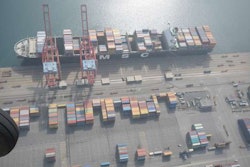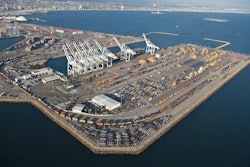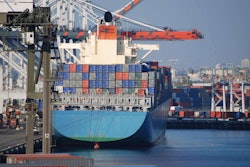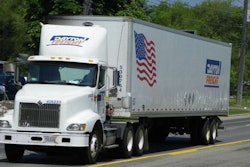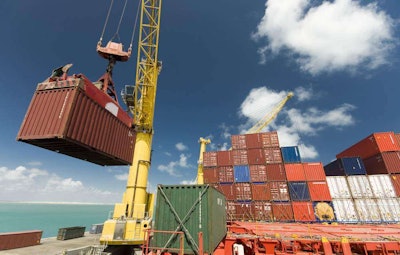
The PMA made an “all-in” contract proposal Feb. 4 in hope of ending nine months of negotiations with the International Longshore and Warehouse Union. Since October, the Pacific Coast employers association has accused the dockworkers and clerical union of instituting work slowdowns.
“Our members have shown tremendous restraint in the face of ILWU slowdowns that have cut productivity by as much as 30, 40, even 50 percent,” the PMA stated. “This offer puts us all-in as we seek to wrap up these contract talks and return our ports to normal operations.”
A federal mediator joined the talks Jan. 5 after both sides requested help negotiating the contract affecting 20,000 workers in 29 ports. The union temporarily extended their contract when it expired in July, but refused another extension late last fall.
ILWU President Robert McEllrath responded to association’s pitch by saying the parties are “extremely close” to agreement and that the union is attempting to keep employers at the negotiating table.
Recent massive port slowdowns are not union-engineered, but the result of “employer-caused congestion,” McEllrath added.
The PMA’s five-year contract offers a 3 percent wage hike for full-time workers, who currently average $147,000 annually. It contains a 5 percent cost increase per year and increases the maximum annual pension to $88,800. Workers would keep current health benefits which include no premiums, co-pays or deductibles if using in-network providers.
They also would also have jurisdiction to inspect every chassis before it leaves the terminal.
The association said the ILWU wants to change the decades-long process for selecting arbitrators, which would permit the union to unilaterally remove arbitrators who rule against them.
The West Coast slowdowns have been costly, with some companies choosing to ship by air to avoid port gridlock.
Governmental and business leaders have repeatedly asked for resolution of the issue, including U.S. Reps. Dave Reichert and Kurt Schrader. On Feb. 2, more than 80 Congressional members signed the Washington Republican’s and Oregon Democrat’s third letter, which asks “both organizations to come to an agreement for the good of the entire nation.”
The U.S. Federal Mediation and Conciliation Service appointed a mediator Jan. 5, but agency policy prohibits releasing information on negotiations.
Port contract negotiations have been historically rocky.
In 2002, President George Bush became the first president since President Richard Nixon to invoke the Taft-Hartley Act. This 1947 law allows the president to request an 80-day cooling off period when a strike or shutdown endangers national health or safety.
That October, the PMA had shut the ports and locked out longshoremen after accusing them of instigating slowdowns. A federal judge granted the injunction after Labor Secretary Elaine Chao was unable to negotiate a 30-day contract extension to reopen the ports.
The last West Coast longshoreman’s strike was ended in 1971 when Nixon invoked the act’s emergency provision.

